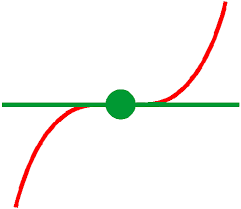
记忆方法
为了记住“inflection”,可以将其分解为“in”和“flection”。想象“in”代表“内部”,而“flection”代表“弯曲”或“折叠”。将这两个部分结合,可以想象为一个单词的内部发生了弯曲或折叠,这种变化通常指的是语调或词尾的变化,即词的屈折形式,这正是“inflection”所表示的。通过这种视觉联想,可以帮助记忆“inflection”的含义。
以上内容由AI生成, 仅供参考和借鉴
中文词源
inflection 屈折变化
来自inflect,屈折。
英语词源
- inflection (n.)
- early 15c., from Middle French inflexion and directly from Latin inflexionem (nominative inflexio) "a bending, inflection, modification," noun of action from past participle stem of inflectere (see inflect). For spelling, see connection. Grammatical sense is from 1660s.
权威例句
- 1. The man's voice was devoid of inflection.
- 那人的声音缺少抑扬变化。
- 2. "Seb?" he said, with a rising inflection.
- “是塞伯吗?”他扬声问道。
- 3. She spoke in a low voice, always without inflection.
- 她低声说话, 总是声调平平无抑扬变化.
- 4. We decided to stop the boat in the inflection of the river.
- 我们决定将船停在河的弯曲之处.
- 5. He might have caught the inflection of her panic.
- 他很可能为她的恐惧所传染.